INTERNATIONAL DAY OF FAMILIES: “FAMILIES AND CLIMATE ACTION: FOCUS ON SDG13”
anne2019-05-15T15:10:42+08:00

Although families all over the world have transformed greatly over the
past decades in terms of their structure and as a result of global
trends and demographic changes, the United Nations still recognizes the
family as the basic unit of society. The International Day of Families
provides an opportunity to promote awareness of issues relating to
families and to increase knowledge of the social, economic and
demographic processes affecting them. It has inspired a series of
awareness-raising events, including national family days. In many
countries, this day is an opportunity to highlight different areas of
interest and importance to families.
Each year, 15th May is observed worldwide as the International Day of
Families. In 1993, the UN General Assembly proclaimed this date to be an
opportunity to promote awareness of issues relating to families and to
increase knowledge of the social, economic, and demographic processes
affecting families. The United Nations Programme on the Family stresses
the importance of having healthy and happy familial relationships.
This year’s theme of the International Day of Families is Families,
“Families and Climate Action: Focus on SDG 13. This year, the day
reflects the importance the international community attaches to families
and their role in development. Recent commemorations of the Day focused
on the role of families for the achievement of SDGs 1 – 5 and SDG 16.
The 2019 observance focuses on families, family policies and major SDG13
targets: SDG 13 target 13.3: Improve education, awareness-raising and
human and institutional capacity on climate change mitigation,
adaptation, impact reduction and early warning SDG 13 target 13.2:
integrate climate change measures into national policies, strategies and
planning.
The approaches to family policies for inclusive societies vary around
the world. In some regions emphasis is placed on the social inclusion of
various types of families and/or individuals such as migrant or
indigenous families, ethnic minorities or families with persons with
disabilities. In other regions, the primary emphasis is placed on social
protection for vulnerable families to facilitate their full inclusion in
the mainstream of society. As approaches vary, this year’s observance of
the International Day of Families is to raise awareness of the role of
families and family policies in achieving more inclusive societies from
regional perspectives.
We, at World Assembly of Youth (WAY), understand the importance of the
international day of families. It highlights the importance of family in
society thereby having stronger families; stronger schools and stronger
communities. It also provides a real-life example of how the human
family can work together to create a better world. It is an opportunity
to have critical conversations about some of the challenges that
families around the world face. Many families are dealing with issues
like poverty, lack of health care, employment, and child rearing. And
today, we promote awareness and a better understanding of some of these
challenges. We also encourage young people from all around the world to
embrace gender equality in contemporary families in both their current
family and the one that they will build in future.
As the coordinating body of National Youth Councils, it is one of our
functions to work together as a family because we believe that family is
a vital foundation of an individual’s positive development that will
lead to the overall betterment of societies. We treat everyone equally
as we seek to create a more just world by empowering everyone,
especially young activists from around the globe through a combination
of cross-cultural human rights.
Together with this year International Day of Families, we recap our
encouragement to the youth to embrace the significance of family
especially its role in education and achievement of Sustainable
Development Goals.
Services
Stakeholder mapping, analysis, engagement and communication needs to be detailed to avoid business losses or even worse, a crisis. How can you do this effectively to prevent failure? ...
Data-driven business decisions have never been as crucial, especially in this era. MGBF leverages off, technology, experience and market presence to aid businesses in making accurate decisions. ...
MGBF provides comprehensive strategic advice and results-focused solutions to solve clients' problems in business-government relations so they can focus on their core business. ...
A critical business challenge is meeting the right decision-makers and potential buyers through the best channel and platform. How will you improve your business competency? ...
Upcoming Events
In this episode of 'A Working Lunch with Nordin', MGBF's Nordin Abdullah and regional commentator Eddin Khoo will discuss the biggest threats and opportunities for businesses as we look to manage change in the South China Sea.
This MGBF Roundtable will feature thought leaders form Japan, Australia, Singapore and Malaysia dealing with the critical issues of manipulation of public listed companies and government and their financial impacts.
A series of networking sessions with various business associations and trade organisations exploring high-value opportunities for business leaders and entrepreneurs looking to build the relationships that matter.
This integrated event will include a forum, dedicated business matching, site visits, a gala dinner and a round of golf. Aptly themed, the focus will be on regional food security issues and trends in the context of the supply chain, agriculture technology and trade regulations and policies.
MGBF In The News
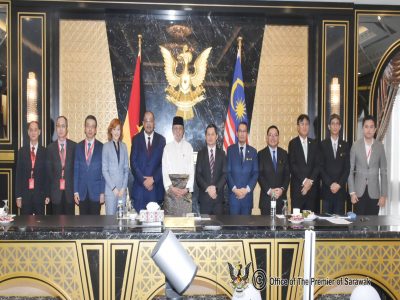
Planet QEOS and China Machinery Engineering Corporation (CMEC) are interested in investing RM10 billion to co-develop advanced Megawatt peak (MWp) agrovoltaic in Baram, to further boost Sarawak’s green energy initiative and food security. Sarawak Premier Datuk Patinggi Tan Sri Abang Johari Tun Openg was briefed on Friday by both the […]

Last week SPM results came out, 373,974 aspirants who have been waiting patiently over the last few months would now know their fate. Some 10,109 have received all A’s, the golden standard of academic success and the ticket to those looking to study the “more advanced” subjects in university. Proudly, […]

The classic knee-jerk reaction is to say, fire the coach, change the leadership of associations, and reduce the funding till they start performing better. This kind of negative reinforcement may work for kindergarten children, but we are dealing with high-performance adults – individuals much further along in their psychological and […]
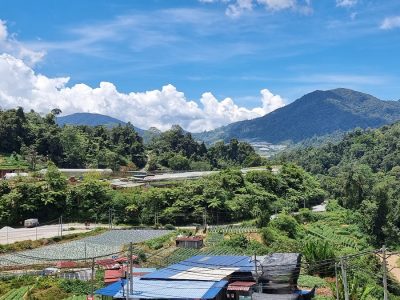
Since its earliest tea plantations in 1929, Cameron Highlands has grown to become a key player in the agricultural landscape of Malaysia, producing 40 per cent of all vegetables grown. Despite Malaysia shifting its economic focus away from agriculture, the industry remains imperative for food security and the livelihoods of […]

Although at first glance the travel industry and the agricultural sector appear to have nothing in common, they actually share more than meets the eye. The economic benefits of tourism to the agricultural sector can be multiplied several times over. “Tourism brings the end consumers closer to the source, which […]

The Malaysia Global Business Forum (MGBF) recently held a high-level roundtable themed ‘Designing the Future of the Digital Economy’, attended by industry leaders and business associations. The guest of honour was Yang Berhormat Syerleena Abdul Rashid, the Member of Parliament (MP) for Bukit Bendera in Penang. The MP’s Special Session […]

The Malaysia Global Business Forum (MGBF) will be hosting a roundtable on ‘Designing the Future of the Digital Economy’ on 23 February 2023. It is the culmination of the first three MGBF Exclusive Roundtable Series titled ‘The Evolving Threat Matrix in the Digital Economy’ held throughout 2022. According to the […]

The Founding Chairman of the Malaysia Global Business Forum (MGBF), Nordin Abdullah, today spoke on Bernama TV’s leading English talk show, The Brief, hosted by Jessy Chahal, on the topic of a stable political reality and what that means for the Malaysian economy. Nordin said, “The first thing that it […]

More than 1,100 years ago, Muhammad ibn Musa al-Khwarizmi was developing the mathematical formulas that we know today as algorithms which now have become so intertwined with the business fortunes of global media giants and the very fabric of geopolitics. A series of recent high level international reports have revealed […]

KSK Land has been recognised by the Malaysia Global Business Forum (MGBF) for its role in attracting high net-worth individuals to Malaysia post-pandemic. The first challenge in investor attraction is “selling” the country. In the context of Asia, Malaysia is competing with some very established investment destinations. The second […]

Malaysia, in particular Kuala Lumpur, continues to position itself as a regional centre to do business, educate a family and enjoy a global lifestyle. One company, KSK Land, has taken the lead in positioning itself and the city of Kuala Lumpur as a property investment destination for the global citizen […]
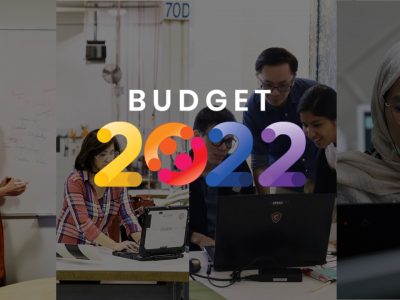
The upcoming budget represents an opportunity to build resilience in the critical sectors that will form the backbone of the country’s future-facing economic ambitions. This however needs to be achieved in the context of managing the community sectors most impacted by COVID-19 over the past two years. The Keluarga Malaysia (Malaysian Family) […]

Malaysia Global Business Forum (MGBF) has moved to support the creative economy as the overall economy moves into a recovery phase following the COVID19 pandemic. As a step in the direction of normalcy, the MGBF has agreed to host the art exhibition “I Know You’re Somewhere So Far” by one […]
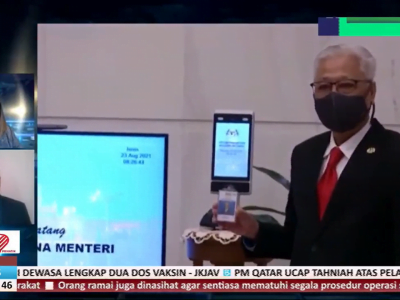
Congratulations to Datuk Seri Ismail Sabri Yaakob for taking up the mantle of the ninth prime minister of Malaysia. There is nothing normal about the situation; it could not have been scripted but it has kept the spectrum of media, mainstream and social, gripped. The first order of business for […]

In a stirring speech to the nation, President Joseph R. Biden, Jr. stamped his brand of leadership on the presidency, in his first act as the 46th president of the United State of America, it signaled several shifts. Perhaps the weather was foreboding with snow falling before the ceremony that […]

KUALA LUMPUR, 6 July 2022 – As the global economy continues to deal with unprecedented levels of disruption caused by the pandemic and the conflict between Russia and Ukraine, the convergence of energy security and food security issues has become a front-of-mind issue faced by policy makers and consumers alike. […]

KUALA LUMPUR, 23 June 2022 — Malaysia Global Business Forum (MGBF) ties up with scoutAsia to ensure that businesses are equipped with deeper regional insights. The past two years has seen a massive shift in the way businesses are conducted with digitisation, digitalisation and automation continuously being adopted to improve […]
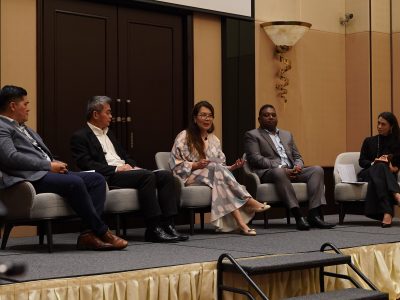
KUALA LUMPUR, 25 May 2022 – The Malaysia Global Business Forum (MGBF)’s exclusive roundtable on ‘Security Concerns in Critical Value Chains’ was held in a hybrid setting yesterday at the Eastin Hotel Kuala Lumpur. The guest of honour was Yang Berbahagia Tan Sri Dato’ Seri Rafidah Aziz, former minister of […]

We live in the age of crisis. At the heart of any crisis is the threat of rapid change. Change too deep or too wide that the current coping mechanisms for an individual, corporation or government are unable to remain resilient. An unwelcome paradigm shift, like the proverbial spider, that […]



































